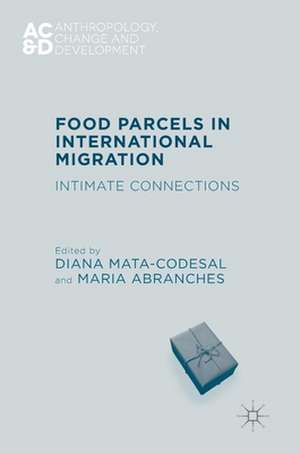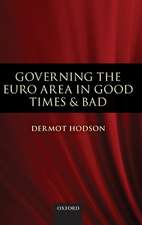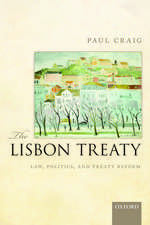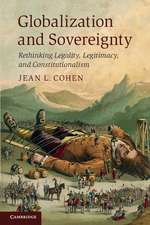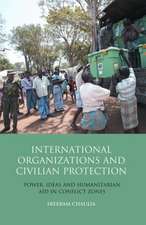Food Parcels in International Migration: Intimate Connections: Anthropology, Change, and Development
Editat de Diana Mata-Codesal, Maria Abranchesen Limba Engleză Hardback – 24 aug 2017
| Toate formatele și edițiile | Preț | Express |
|---|---|---|
| Paperback (1) | 625.19 lei 38-44 zile | |
| Springer International Publishing – 3 aug 2018 | 625.19 lei 38-44 zile | |
| Hardback (1) | 701.25 lei 6-8 săpt. | |
| Springer International Publishing – 24 aug 2017 | 701.25 lei 6-8 săpt. |
Preț: 701.25 lei
Preț vechi: 825.01 lei
-15% Nou
Puncte Express: 1052
Preț estimativ în valută:
134.19€ • 140.45$ • 111.68£
134.19€ • 140.45$ • 111.68£
Carte tipărită la comandă
Livrare economică 31 martie-14 aprilie
Preluare comenzi: 021 569.72.76
Specificații
ISBN-13: 9783319403724
ISBN-10: 3319403729
Pagini: 227
Ilustrații: XIII, 223 p. 3 illus. in color.
Dimensiuni: 148 x 210 mm
Greutate: 0.54 kg
Ediția:1st ed. 2018
Editura: Springer International Publishing
Colecția Palgrave Macmillan
Seria Anthropology, Change, and Development
Locul publicării:Cham, Switzerland
ISBN-10: 3319403729
Pagini: 227
Ilustrații: XIII, 223 p. 3 illus. in color.
Dimensiuni: 148 x 210 mm
Greutate: 0.54 kg
Ediția:1st ed. 2018
Editura: Springer International Publishing
Colecția Palgrave Macmillan
Seria Anthropology, Change, and Development
Locul publicării:Cham, Switzerland
Cuprins
1. Sending, bringing, consuming and researching food parcels .- 2. Food as a matter of being: experiential continuity in transnational lives .- 3. Thank you for the cured meat, but is it grass-fed? Contested meanings of food parcels in a new nutrition transition .- 4. When objects speak louder than words: food, intimacy and power in the contemporary transnational Filipino household .- 5. A hard look at the balikbayan box: the Philippine diaspora’s exported hospitality .- 6. Spaghetti with ajvar: an ethnography of migration, gender, learning and change .- 7. West African plants and prayers in the Netherlands: nourishment through visible and invisible substances .- 8. Inkumenda di téra: the informal circulation of Cabo Verdean food products .- 9. From ingredient to dish: the role of supply in the culinary practices of Mexican migrants in the United States.
Notă biografică
Diana Mata-Codesal is Researcher in the Humanities Department at Pompeu Fabra University in Barcelona, Spain.
Maria Abranches is Lecturer in Social Anthropology and Development at the School of International Development, University of East Anglia, UK.
Textul de pe ultima copertă
This book takes food parcels as a vehicle for exploring relationships, intimacy, care, consumption, exchange, and other fundamental anthropological concerns, examining them in relation to wider transnational spaces. As the contributors to this volume argue, food and its related practices offer a window through which to examine the reconciliation of people’s localised intimate experiences with globalising forces. Their analyses contribute to an embodied and sensorial approach to social change by examining migrants and their families’ experiences of global connectedness through familiar objects and narratives. By bringing in in-depth ethnographic insights from different social and economic contexts, this book widens the understanding of the lived experiences of mobility and goes beyond the divide between origin and destination countries, therefore contributing to new ways of thinking about migration and transnationalism that take into consideration the materiality of global connections and the way such connections are embodied and experienced at the local level.
Caracteristici
Offers fresh insight into how migrants maintain and construct transnational connections Covers a broad range of regional contexts, migration pathways, and diverse groups of migrants, including low-skilled labor migrations, refugee seekers, international students, and irregular migrants Contributes to a sensorial approach to the study of social change
